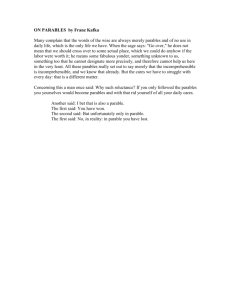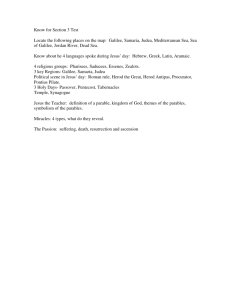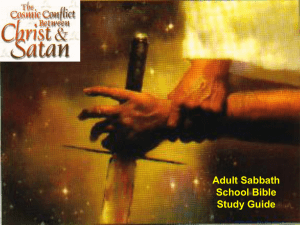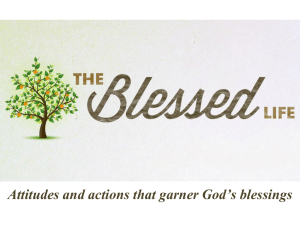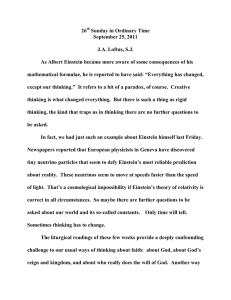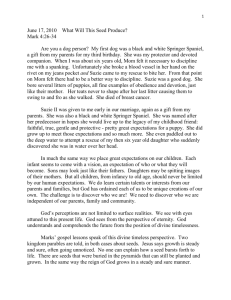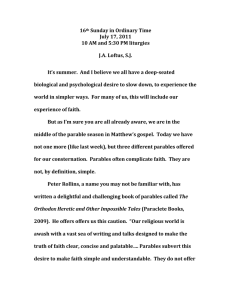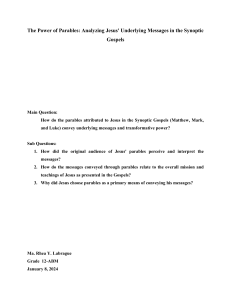11 Sunday in Ordinary Time June 14, 2015
advertisement
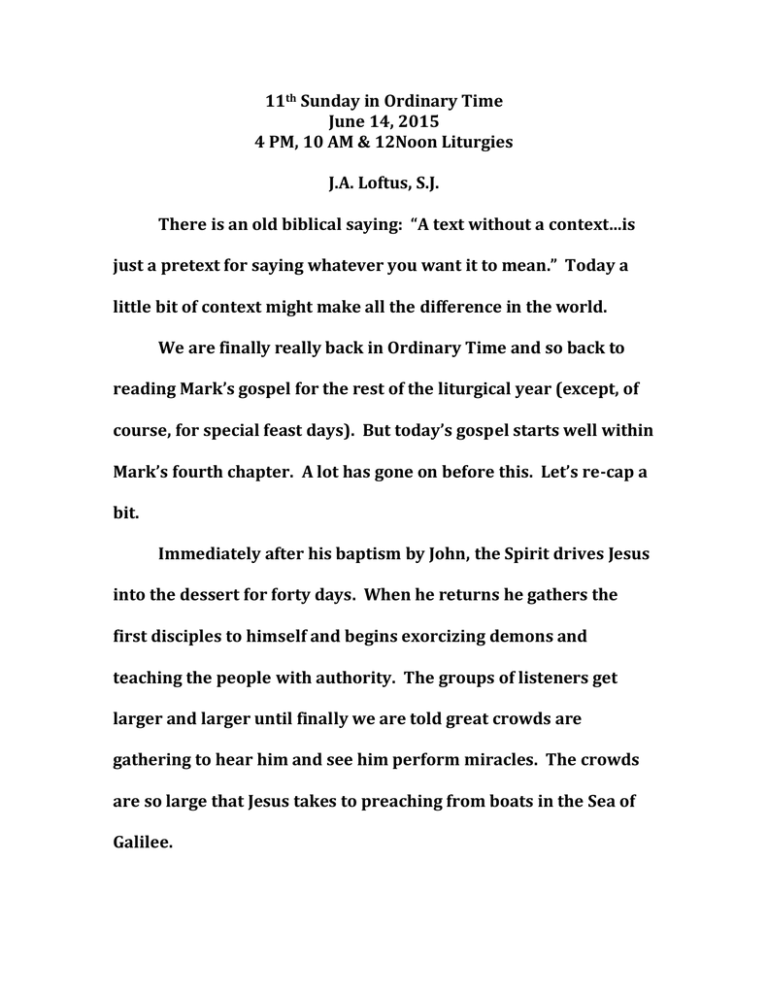
11th Sunday in Ordinary Time June 14, 2015 4 PM, 10 AM & 12Noon Liturgies J.A. Loftus, S.J. There is an old biblical saying: “A text without a context…is just a pretext for saying whatever you want it to mean.” Today a little bit of context might make all the difference in the world. We are finally really back in Ordinary Time and so back to reading Mark’s gospel for the rest of the liturgical year (except, of course, for special feast days). But today’s gospel starts well within Mark’s fourth chapter. A lot has gone on before this. Let’s re-cap a bit. Immediately after his baptism by John, the Spirit drives Jesus into the dessert for forty days. When he returns he gathers the first disciples to himself and begins exorcizing demons and teaching the people with authority. The groups of listeners get larger and larger until finally we are told great crowds are gathering to hear him and see him perform miracles. The crowds are so large that Jesus takes to preaching from boats in the Sea of Galilee. At some point Jesus flees back into a quiet dessert place and Simon and his friends find him to say, “Everyone is looking for you.” And Jesus says, let’s go to the neighboring towns and villages. And then the crowds get even larger including people not only from Judea and Jerusalem but also from as far away as Tyre and Sidon. He continues teaching, often from the sea, but now begins to teach in parables. And chapter four of Mark’s gospel contains many of those initial parables. The chapter begins, though, with another parable of sowing, the one where seed is spilled on rock, thorns, and finally good soil. It quickly becomes clear that no one is really getting the parables, not even the closest disciples, not even “the twelve.” We might take from this that the parables might not be intended to be that easily understood. Jesus seems to have known that. As Professor Amy-Jill Levine says, if you think you really “get” one of the parables, or you really like one of them, you’ve probably misunderstood it (See Levine, A-J. Short Stories by Jesus: Enigmatic Parables of a Controversial Rabbi, p. 3ff). Parables are designed to be tricky and not easily understood. 2 You have probably heard the marvelous line about the gospels, that they are designed “to comfort the afflicted, and afflict the comfortable.” Well, the parables are Jesus’ major tool for afflicting the comfortable. They are often inscrutable and puzzling. They are meant to be. With all that in mind, what do we make of today’s two little parables? The first one is also about a seed and growth. But this one is painfully brief and open to all kinds of interpretations. It is also unique to Mark’s gospel. A farmer plants a seed, goes to bed, slowly watches a sprout, and then a full ear and grain. The farmer wonders that he has no idea why it happens. We, 2000 years later, are much better at explaining “how” it happens. We know more about agriculture. But even we don’t know much more than the farmer about “why” it happens, do we? As Professor Levine suggests, “ To speak of the parable as demonstrating that great outcomes arrive from small beginnings is correct, but it is banal”(p. 165). But remember that all Jesus’ parables are about the Kingdom of God. Could this little parable just be a warning to all to stay out of the way of God’s creation, God’s work? We will never understand it anyway! I don’t know 3 exactly what it means either. Maybe you can tell me on the way out of church, or next week sometime. But maybe it will mean many different things to many different people. That’s how real parables are made. And now on to the mustard seed. This parable is told in other gospel accounts though they all differ significantly. Listen to Professor Levine again, “The parable of the mustard seed has put forth so many branches of interpretation that the birds of heaven could build multiple nests and still have room for expansion” (p. 152). No easy answers here either. If you feel confused at all by now take some consolation from the fact that Jesus seems to have seen this coming. Just before teaching these two parables Jesus says to the disciples, “Everything comes in parables in order that ‘they may indeed look and not perceive, and may indeed listen, but not understand.’” Ever figure that one out? So is there a “take-home?” Perhaps here: God’s kingdom is here and God’s kingdom will grow to fruition--with or without any of my efforts. And aside from God’s creative love and sustaining love and sanctifying love for all creation, there really is no other 4 explanation needed or wanted. God’s Promise is sure. God’s kingdom is sure. Perhaps the marvelous Indian Jesuit, Tony DeMello, got it right when he defined the Eastern notion of Enlightenment. He said, “Enlightenment is complete co-operation with the inevitable.” My sisters and brothers, God’s kingdom is inevitable! Let’s just decide to co-operate a bit more. Peace! 5
